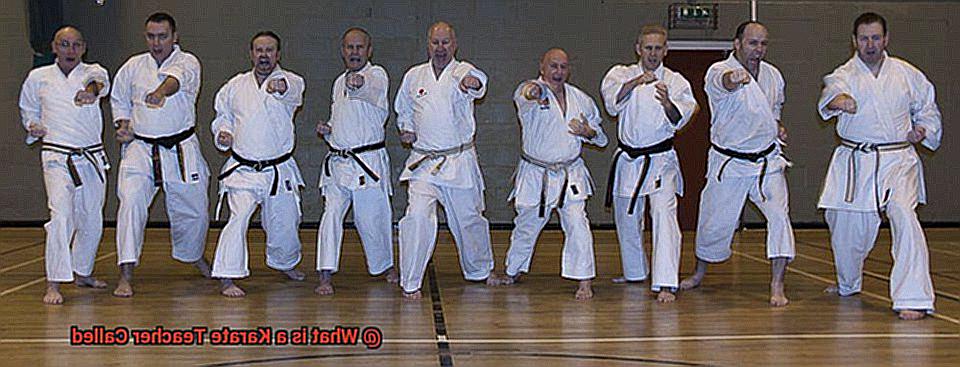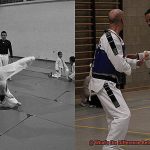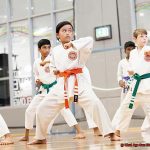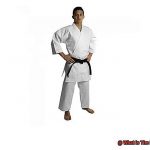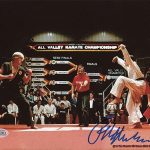Have you ever wondered what a karate teacher is called? You’re not alone. Martial arts instructors are dedicated to teaching the ancient art of karate, and they have their own name to distinguish them.
Karate teachers are referred to as Sensei, a Japanese word meaning “one who has gone before.” This title is awarded in recognition of the teacher’s expertise and experience in martial arts. Sensei are renowned for their knowledge, expertise, and commitment to teaching karate.
Earning this title requires hard work and dedication. To become a master of karate takes years of practice and study, and only those with the highest degree of mastery can be considered true Sensei. They must not only master the physical aspects of karate but also understand its philosophy and be able to explain it logically.
Sensei take on students from all levels, from beginner to advanced, tailoring lessons as needed. They are patient teachers who strive to help each student reach their full potential while also instilling respect for the martial art itself.
A student’s relationship with their Sensei is based on trust, admiration, and mutual understanding. The student must follow their teacher’s example while being open-minded enough to learn new techniques. In the same way, the Sensei should give clear instructions while encouraging students to think independently about their work.
For those new to karate or experienced practitioners alike, having a qualified Sensei by your side will make all the difference in your training. With their guidance you’ll learn how to master this ancient art form while improving discipline, confidence, and self-defense skills along the way.
The Meaning of Sensei
You may have heard the word “sensei” and wondered what it means.
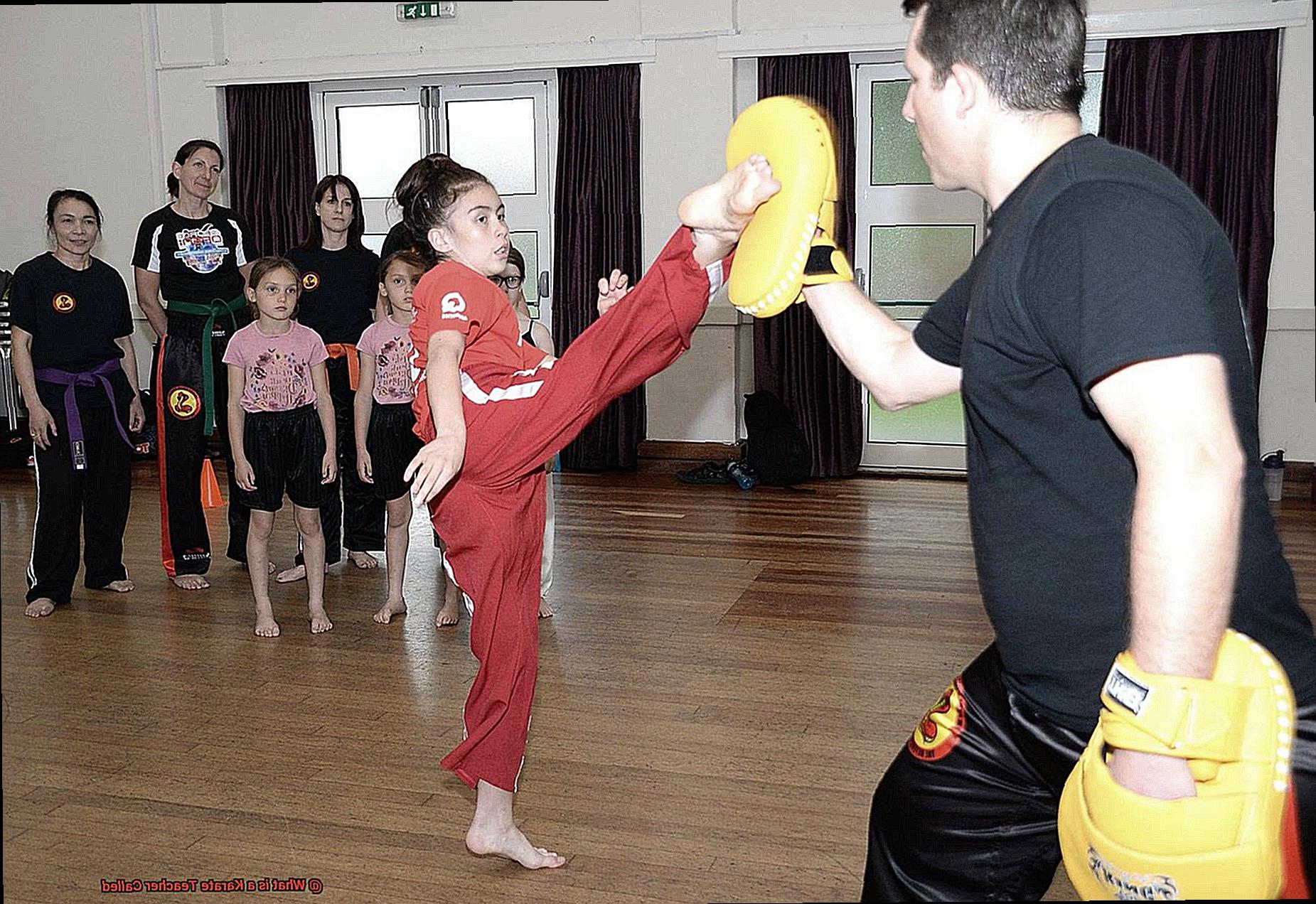
Sensei is a Japanese term that is used to describe a karate instructor. Literally translated, sensei means “one born before another”, indicating that the teacher has been studying and teaching the martial art for many years.
As such, sensei is seen as a respectful title for those who have achieved mastery of the art and students are encouraged to show their appreciation for their teacher.
In addition to being used as an honorific title for karate instructors, sensei can also be used as an honorific title for any person in authority, such as a professor or doctor.
It’s important to note that there are other titles that can be used in karate schools, such as Kyoshi, Hanshi, Sempai, Shihan or Sifu.
Sensei is an essential term in the world of karate. It symbolizes respect and admiration for those who have dedicated their lives to mastering and teaching the martial art.
Kyoshi – Senior Instructor Title
Karate teachers are often referred to as Sensei, but Kyoshi is the highest title a karate instructor can attain. Kyoshi translates to “senior instructor” in Japanese and is awarded to those who have dedicated themselves to mastering their martial art and helping others learn. Kyoshi are considered to be senior instructors, and they are usually respected by their students.
Achieving the title of Kyoshi is no small feat. It requires years of hard work and dedication to martial arts, as well as a high level of skill in their discipline. Kyoshi must also demonstrate patience and knowledge when teaching students, in addition to having an advanced understanding of karate principles.
The name of Kyoshi carries not only honour but also responsibility. They must lead by example, inspiring others with their expertise and passion for karate as senior instructors. They should be able to provide guidance and assistance to their students, assisting them in reaching their full potential in the martial arts.
Kyoshi is an integral part of the karate world, owing to his dedication to learning the art form and teaching it properly. Instructors can show their students that anything is possible with hard work and determination through attaining this title.
Hanshi – Master Instructor Title
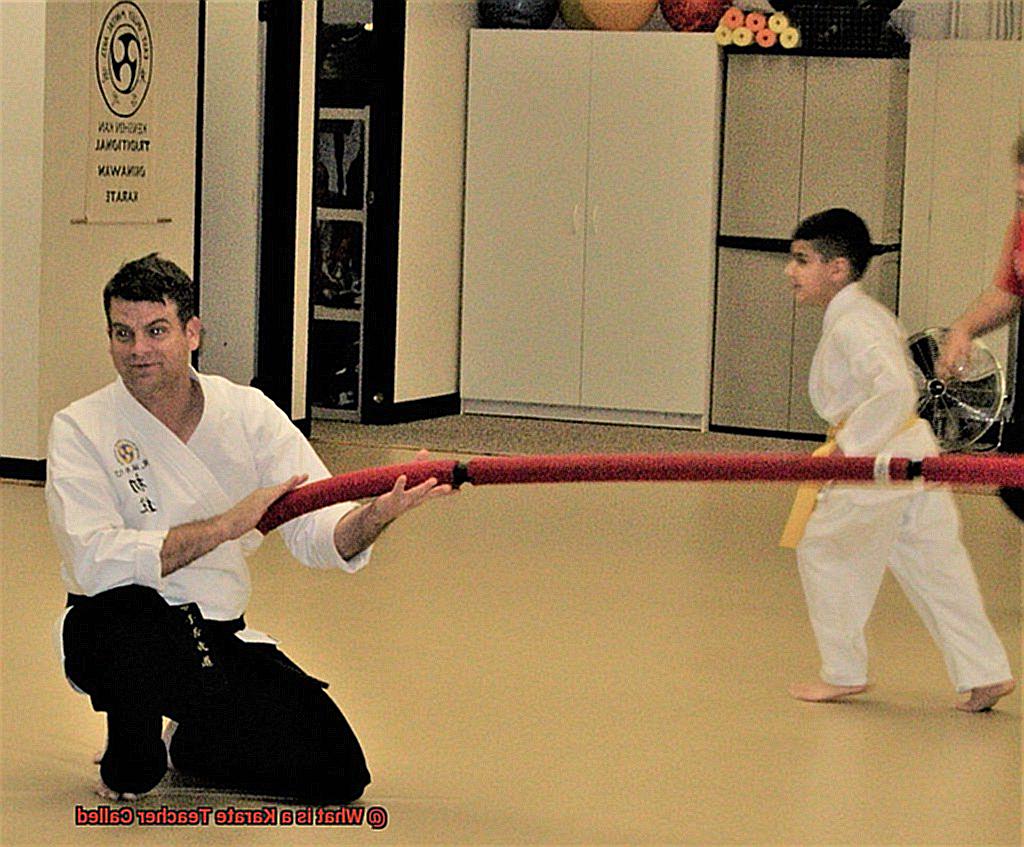
The title of Hanshi is one of the most sought-after achievements within the martial arts industry. It is reserved for those who have reached a high level of skill and knowledge in their field and have dedicated themselves to teaching others.
To be granted the title, you must demonstrate years of hard work, dedication, and an immense understanding of karate. The term “Hanshi” translates to “teacher of teachers” and is associated with great wisdom, experience, and expertise.
Hanshi’s are expected to lead by example and inspire their students with their knowledge and passion for karate. They must be patient teachers who can guide their students in achieving their full potential in the martial arts.
A Hanshi should also be able to impart valuable lessons about hard work and perseverance that can be applied outside of the dojo as well.
The Hanshi title is an essential part of the karate world because it recognizes those who have devoted themselves to mastering their martial art form and teaching others how to do so.
Sempai – Respectful Term for Someone with Higher Rank
The term ‘sempai’ is an essential part of martial arts culture and is used to show respect for someone with a higher rank than the speaker.
In Japanese, sempai translates to “senior” or “mentor,” and it has been adopted by many other martial arts styles, such as karate, taekwondo, and kung fu.
When addressing senior instructors or master instructors in any martial art form, it is important to use the full title of sempai instead of just saying “sensei” or “master”. This demonstrates respect for their rank and expertise in the art form.
Additionally, when speaking about someone with a higher rank than you, it is polite to refer to them as sempai instead of just using their name.
Sempai is an important concept that all martial arts practitioners should understand and respect. It can be used as an honorific title when addressing any instructor or senior member of the dojo, but should always be used respectfully and appropriately.
Shihan and Sifu – Specific Titles for Karate Teachers
The martial arts world is full of respect and admiration for those who dedicate their lives to mastering it. Two terms that are used to show appreciation for the instructors or master teachers in karate are Shihan and Sifu.
Shihan is a Japanese word which translates to “master teacher” or “teacher of teachers”, and is used to refer to a senior instructor or master instructor who has achieved a high level of expertise in the martial art they teach.
Sifu, on the other hand, is a Chinese term meaning “teacher” or “master” and can be used for any karate teacher, regardless of their rank. Both terms are commonly used interchangeably when referring to karate instructors.
Using these titles shows respect for the teacher’s knowledge and experience, and should always be treated with kindness and reverence. It demonstrates an appreciation for martial arts’ history and traditions, as well as recognition of the hard work, dedication, and intelligence that goes into becoming a martial art expert.
It also allows students to learn more about the art form from those who have dedicated their lives to mastering it by showing compassion for those who have achieved higher levels of expertise.
Therefore, using proper names like Shihan and Sifu when addressing their instructors is just one way martial artists can demonstrate their respect for them.
The Use of Given Name Without Titles
Karate is a martial art that is steeped in history and reverence. Traditionally, karate teachers were referred to as “sensei” or “master,” and students were expected to demonstrate respect for this position.
However, many modern karate schools are now encouraging their students to address their teacher by their given name without a title. This practice can be seen as a sign of respect and trust between teacher and student. It also allows for a more personal relationship between the two parties, making it easier for the student to learn from the teacher.
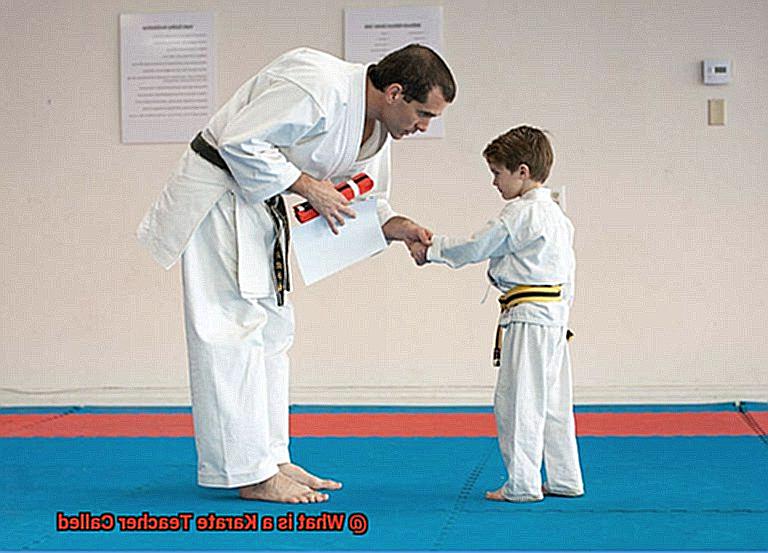
Using given names without titles also creates a more informal atmosphere in the dojo, which can help foster an environment of camaraderie and friendship among students.
This encourages students to ask questions and feel comfortable speaking up when they don’t know something. It also allows for more meaningful discussions between the two groups, which may help the student gain a greater understanding of the content being taught.
Ultimately, using given names without titles is beneficial for both teachers and students alike, as it helps create an atmosphere of mutual respect and understanding in the dojo.
Cultural Significance Behind the Titles of Respect in Karate Schools
Karate schools have more than just a way to address instructors and senior students. The titles of respect have a deep cultural significance that has been passed down for centuries.
These titles demonstrate the authority of the instructor, as well as the student’s commitment to their training. They also signify that the student has earned the right to be respected by their peers and instructors.
In some cases, these titles can even be seen as a sign of honor and prestige, which can be passed down from one generation to another.
But there is more to it than that. The titles of respect in karate schools also serve as an important reminder that martial arts is not about physical strength alone, but also about mental discipline, respect, and humility.
These values are essential for any martial artist, and they are often reinforced by using these special names in dojos.
Examples of How to Refer to Your Karate Teacher or Instructor
Karate students have a unique way of referring to their teacher – and it’s important to get it right. The most common term used for a karate teacher is “Sensei,” a Japanese word that means “teacher” or “instructor.”
Other terms used to refer to a karate instructor include Shihan (master instructor), Kyoshi (senior instructor), and Sifu (Chinese equivalent of Sensei).
When addressing your teacher in person, bow and use an honorific title such as “Sensei” or “Shihan” followed by the name of the teacher.
In some martial arts schools, students are encouraged to call their teachers by their first names, but only after permission has been granted by the teacher.
It’s essential to remember that these titles should always be used with respect and humility.
Conclusion
Karate is a martial art that demands dedication, discipline, and admiration. Karate teachers are highly educated experts who have dedicated their lives to learning and teaching the art form properly.
In Japanese, these instructors are referred to as Sensei – meaning “one who has never gone before”. Kyoshi is the highest level a karate instructor can achieve, while Hanshi is another title for those who have achieved mastery.
Sempai refers to someone with a higher rank than the speaker, and Shihan and Sifu are two specific karate teachers.
However, some modern karate schools now encourage their students to talk to their teacher by their given name without a title. This activity can be seen as an act of respect and confidence between teacher and student, as well as fostering camaraderie and friendship among students.
Showing appreciation for your karate instructor is essential in order to succeed in this ancient art form – whether it’s through traditional titles or simply using given names. It helps create a sense of mutual respect and understanding in the dojo.

